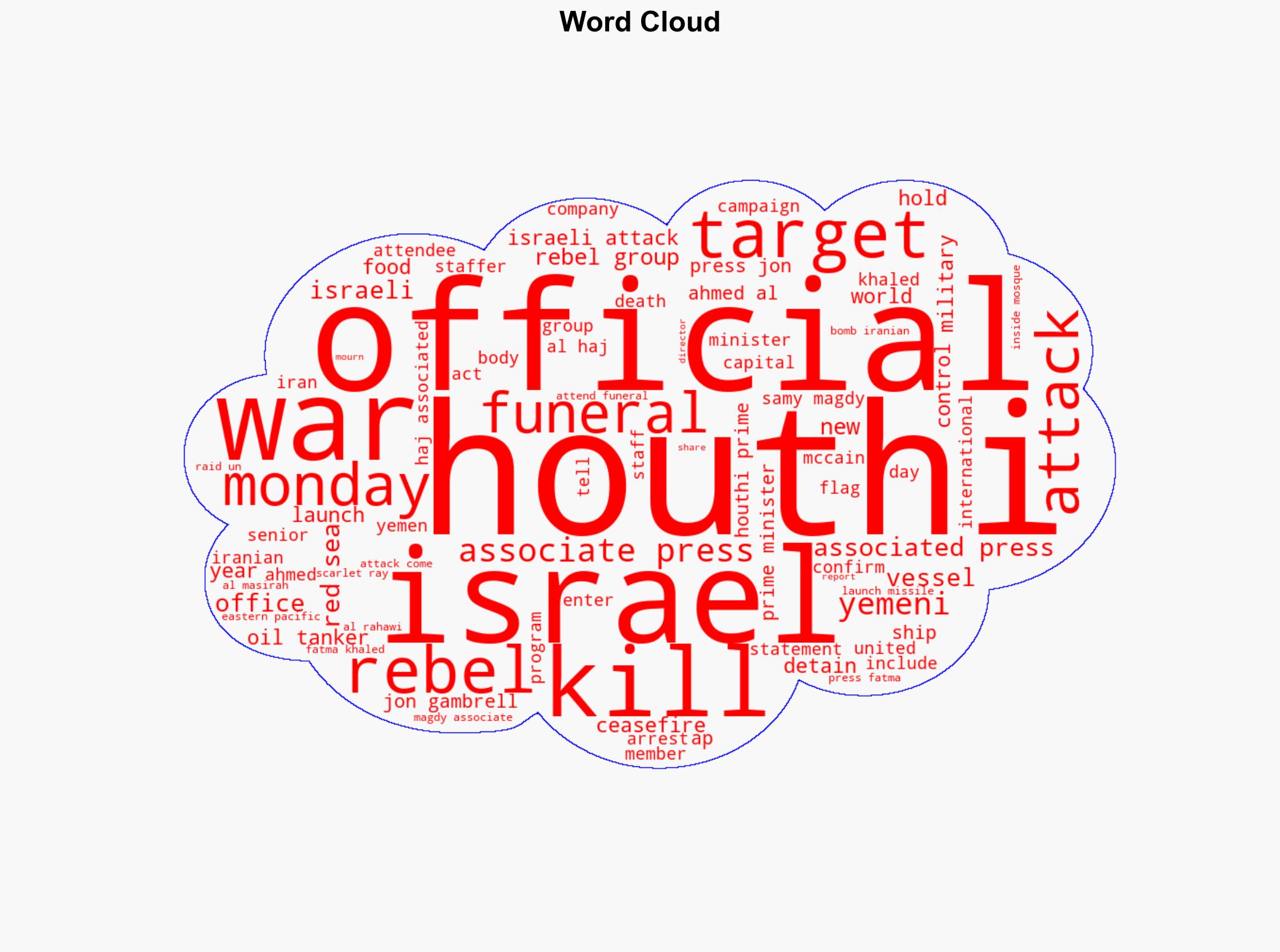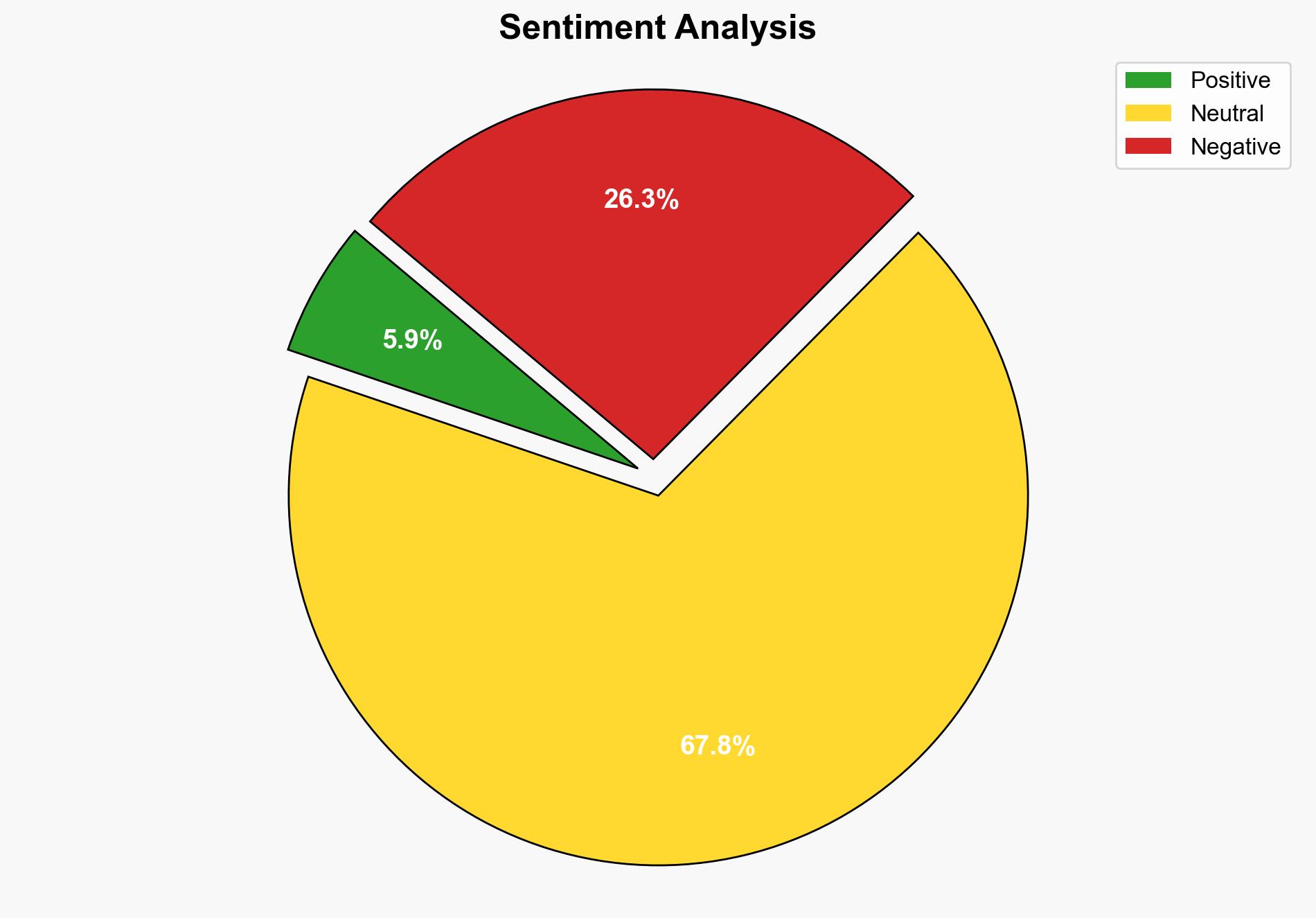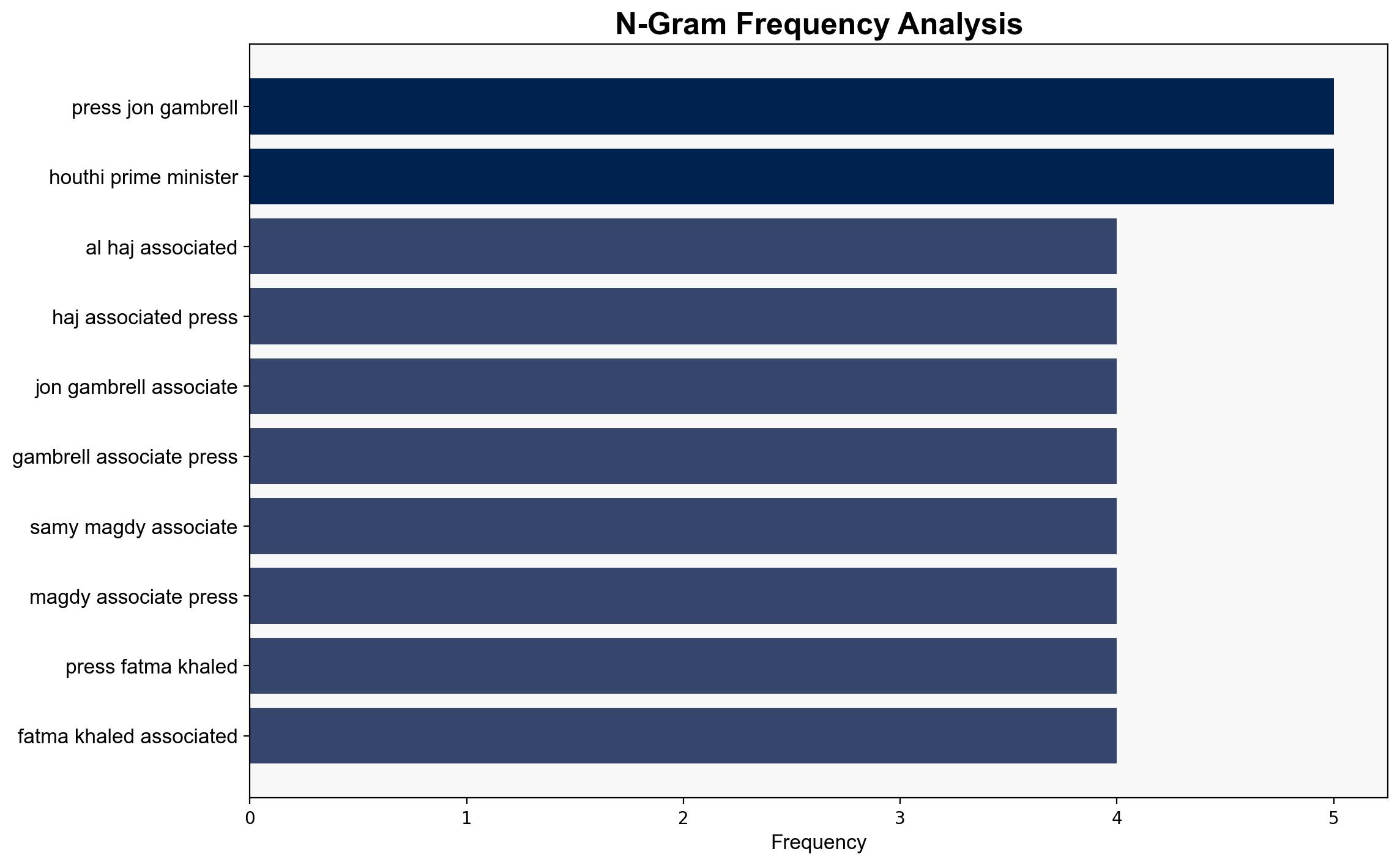Yemenis mourn killed Houthi prime minister as rebel group targets ship in Red Sea – PBS
Published on: 2025-09-01
Intelligence Report: Yemenis mourn killed Houthi prime minister as rebel group targets ship in Red Sea – PBS
1. BLUF (Bottom Line Up Front)
The most supported hypothesis is that the recent escalation by the Houthis, including the targeting of a ship in the Red Sea, is a strategic maneuver to leverage geopolitical tensions and gain concessions amidst ongoing regional conflicts. Confidence Level: Moderate. Recommended action includes increased maritime security measures and diplomatic engagement with regional stakeholders to de-escalate tensions.
2. Competing Hypotheses
Hypothesis 1: The Houthi attacks are a direct retaliation against Israeli actions, aiming to demonstrate military capability and solidarity with Palestinian groups amidst the Israel-Hamas conflict. This hypothesis suggests a direct link between the death of the Houthi prime minister and the subsequent attacks as a coordinated response.
Hypothesis 2: The Houthi actions are part of a broader strategy to disrupt maritime trade routes in the Red Sea, leveraging regional instability to gain political and economic concessions. This hypothesis views the attacks as part of a longer-term strategy rather than immediate retaliation.
Using ACH 2.0, Hypothesis 2 is better supported by the pattern of previous Houthi actions targeting maritime routes and the strategic significance of the Red Sea for global trade.
3. Key Assumptions and Red Flags
Assumptions include the belief that the Houthis have the capability and intent to conduct sophisticated maritime attacks independently. A red flag is the lack of direct evidence linking the Houthi prime minister’s death to Israeli actions, which could indicate potential misinformation or propaganda. The assumption that regional powers will not escalate further is also a potential blind spot.
4. Implications and Strategic Risks
The escalation in the Red Sea could lead to increased insurance costs and rerouting of shipping lanes, impacting global trade. There is a risk of further regional destabilization if retaliatory actions escalate. Cyber threats could also increase as part of asymmetric warfare tactics. Geopolitically, this could strain relations between regional powers and external stakeholders, complicating diplomatic resolutions.
5. Recommendations and Outlook
- Enhance maritime security through international naval cooperation to safeguard shipping lanes.
- Engage in diplomatic efforts with regional powers to mediate tensions and prevent further escalation.
- Scenario-based projections:
- Best Case: Successful diplomatic intervention leads to a ceasefire and stabilization of the region.
- Worst Case: Escalation into broader regional conflict involving multiple state actors.
- Most Likely: Continued low-level skirmishes with intermittent diplomatic engagements.
6. Key Individuals and Entities
Ahmed Al Rahawi, Yahya Saree, Idan Ofer.
7. Thematic Tags
national security threats, cybersecurity, counter-terrorism, regional focus





